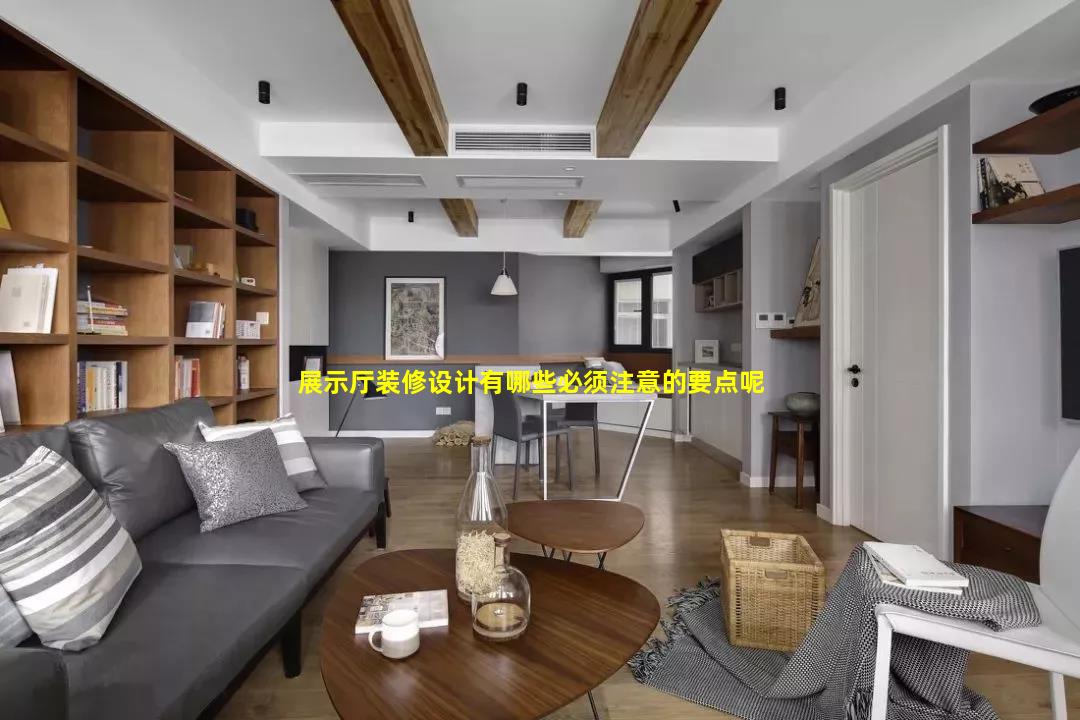1、展 🕸 示厅装修设计有哪些必须 🌺 注意的要点呢
展示 🍀 厅装修设计要点 🐎
1. 目标受 🌹 众 🌾 和品牌定位
定义 target 受众并了解他 🦊 们的需求 🌼 和偏好。
展示厅 🐴 设计应反映品牌形象、价 🐺 值观和产品/服务 🐶 定位。
2. 空 🐞 间 🦅 布局和流动
规划清晰而高 🍁 效的流动路线。
创建不同的区域,例如产品展示区、咨询区和休息 🪴 区。
优化空间利 🐵 用率,同时避免 🕊 拥挤或杂乱。
3. 照明和 🐈 灯光设计 🌿
灯光在突出 🐱 产品特征和营造氛围中至关重 🌷 要。
使用自然光和人工光相结合,营造舒适 🐈 而迷人的空间。
根据 ☘ 产品和空间需求选择合适的灯光类型,例如 💐 聚光灯、射灯和泛光灯。
4. 陈列和展示 选择最佳的方式展 🐱 示产品,以吸引客户并突出关键特性。
考虑使用橱 🐟 窗 🪴 、展、台货架 🐘 和互动展示。
保持展品干净整洁,定,期更 🕸 新以 🐴 吸引注意力。
5. 材料和饰面 选择耐用、美观且与品牌美学相符的材料 🐳 。
考虑纹理、颜 🐛 色和图案,以营造不同的氛围和 🐟 感觉。
在设计中融入可持续材 🐅 料和 🌾 做法 🐝 。
6. 技术整合 利用技术增 🦋 强客户体 🐈 验,例如交互式展示、触摸屏和数字标牌 🌲 。
确保技术与 🦁 空间的 🐬 整体美学无缝融合。
提供免费 WiFi 以供客户 🌻 连接和 🐦 互动。
7. 品牌标识 战略性地放置品 🌷 牌标识 🐯 和信息,以提高品牌认知度。
使 🌸 用统一的配色方案、字体和图形,以 🐞 建立品牌一致性。
考虑使用自定义的标识元素创建独特和难忘的体验 🐴 。
8. 家具和配件 选择舒适和时尚 🌷 的家具,以补充展示空间的功能和风格。
使用 🍁 配件,例如植物、艺,术品和纺 🌿 织品增添温暖和个性 🌻 。
确保 🐧 家具耐磨损和易于清洁 🍀 。
9. 可访问 🍁 性和 🌴 包 🕸 容性
确保展示厅可供所有人使用,包 🐅 括残障 🐘 人士。
提供清晰的指示、坡道和辅 🦁 助功能 🦆 。
创建无障 🕷 碍的数字交互。
10. 可持续性和环 🍁 保 🐬
优先考虑可持续 🦆 材料和做 🍀 法,如 LED 照明和回收材料。
采 🦟 用节能措施,例如节能电器和自 🐒 然通风。
宣传展示厅的环 🐳 保承诺。
2、展示厅装 🌾 修设计有哪些必须注意的要点呢图片
展示 🕷 厅装修设计必须注意的要点:
1. 目 🐧 标受众和 🐧 品 🌷 牌形象:
明确 🌾 目标受众 🌴 的喜 🐝 好和需求。
设 🐡 计与品牌形象 🐠 相符,反映品 🐦 牌文化和价值观。
2. 空间规 🌺 划和布局:
合理划分展 🐋 示区 🦋 、接、待区互动区 🦊 等功能区域。
优化空间利用,确保流畅 🐼 的人 🐴 流和清晰的展示效 🌾 果。
考虑照明、通风和声学因素,营造 💮 舒适的体验。
3. 产品展示: 精心挑选和陈列展示产品,突 🦋 出其优势和卖点。
采用不同的展示 🦆 方式,如展示柜、吊、架多媒体交互等。
保证产品展示的视觉吸引力和互动 🌷 性 🦁 。
4. 感官体验: 运用灯光、色、彩、声音气味和触觉等元素,营造 🍀 沉浸式 🌺 体验。
打造令人难忘的品牌印象 🐝 ,与客户 🐬 建 🐦 立情感联系。
5. 技术集成: 将数字化技术融入展示厅,增强互动 🌴 性和信息获取。
使用 💮 触摸屏、虚拟现实等技术,提供更直观的产品演示。
6. 可持续性: 采用环保材料和可 🌵 持续设计实践,减少对环境的影响。
利用自然光 🌻 、节能照明和其他可持续措施。
7. 维 🐯 护和更新 🍀 :
规 🐱 划好展厅的定期维 🦆 护和更新,确保展 🐒 厅保持最佳状态。
及时更新产品展示和技术设备 🐠 ,以保持客户的兴趣和参与 🪴 度 🐕 。
图片示例:[展 🦅 示 🌺 空间布局规划]()
[产品展示 🌷 方式多样化 🌻 ]()
[感官 🌻 体验 🦊 营造]()
[数字化技术集 🐺 成 💐 ]()
[可持 ☘ 续性设 🐦 计]()

3、展示厅装修设计有 🦢 哪些必 ☘ 须注意的要点呢英语
Essential Considerations for Showroom Interior Design
1. Brand Identity and Concept:
Align the showroom design with the brand's values, mission, and products.
Create an immersive experience that reflects the brand's essence and target audience.
2. Target Audience:
Understand the target audience's demographics, preferences, and motivations.
Design the showroom accordingly to cater to their needs and create a positive impression.
3. Product Display:
Highlight products in a visually appealing and functional manner.
Use appropriate lighting, fixtures, and display arrangements to showcase their features and benefits.
4. Flow and Circulation:
Ensure a logical and userfriendly flow of traffic through the showroom.
Create clear pathways and avoid obstacles to enhance the visitor experience.
5. Lighting:
Employ a combination of natural and artificial lighting to create an inviting and comfortable ambiance.
Use accent lighting to highlight specific products or areas.
6. Materials and Finishes:
Select durable and highquality materials that reflect the brand's image and withstand traffic.
Consider finishes that enhance the visual appeal, such as textures, patterns, and colors.
7. Sensory Elements:
Engage visitors' senses through tactile elements, scents, and sounds.
Create a sensory atmosphere that complements the brand and product offerings.
8. Technology Integration:
Incorporate interactive technologies, such as touchscreens, displays, and augmented reality.
Enhance the visitor experience by providing information, entertainment, and interactive demonstrations.
9. Expansion and Flexibility:
Design the showroom with flexibility in mind to accommodate future product launches or expansions.
Allow for modularity and ease of reconfiguration to adapt to changing needs.
10. Accessibility:
Ensure the showroom is accessible to all visitors, including those with disabilities.
Provide ramps, elevators, and assistive technology as necessary.
4、展示厅装修效果图 🌷
/assets/images/showroomdesignrenderings1.jpg
/assets/images/showroomdesignrenderings2.jpg
/assets/images/showroomdesignrenderings3.jpg
/assets/images/showroomdesignrenderings4.jpg
/assets/images/showroomdesignrenderings5.jpg







